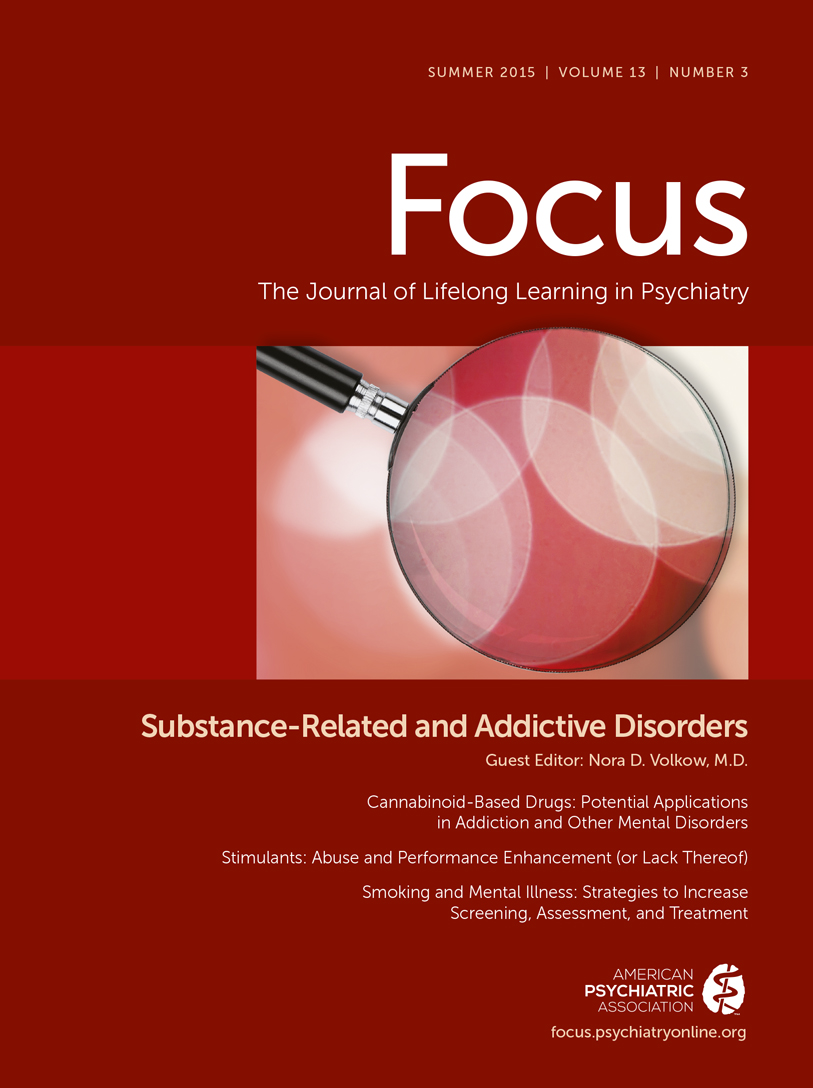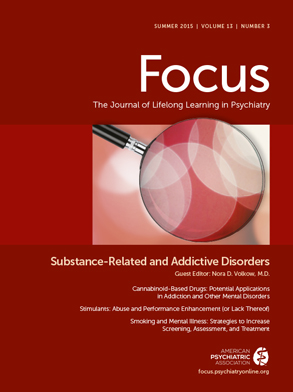The American Psychiatric Association’s (APA) Improvement in Medical Practice/Performance in Practice (PIP) clinical modules are designed to meet the requirements of the American Board of Medical Specialties (ABMS) and American Board of Psychiatry and Neurology (ABPN) Part IV of Maintenance of Certification (MOC). Part IV of MOC, Improvement in Medical Practice PIP clinical modules, is intended to assist in physicians’ evaluation of the quality of care provided in their practice, compared with peers and national benchmarks, and to facilitate practice improvements through the incorporation of best evidence or consensus recommendations to improve patient care. Physicians are required to complete one PIP unit every 3 years. There are two components for each PIP unit: the Clinical Module, consisting of chart reviews of at least five patients in a specific category, and the Feedback Module, which can include feedback from patients, peers, residents, or other members of the health care team. Psychiatrists in the 2013-2015 Continuous-MOC block must complete a Feedback Module. However, beginning in 2016, the Feedback Module will be OPTIONAL. Although the chart review shown in Appendices 1 and 2 is designed as a Clinical Module to facilitate physician practice assessment, this form also could be used in the Feedback Module for peer-review initiatives. Patient feedback is beyond the scope of this module.
There are three stages involved in each PIP unit [ABMS/ABPN—(
1)]:
•
Stage A, the baseline retrospective chart review of at least 5 patients in a specified category, which is then compared with “published best practices, practice guidelines, or peer-based standards”;
•
Stage B, the design and implementation of a clinical practice improvement plan; and
•
Stage C, subsequent remeasurement via a second chart review of 5 patients within the same category within 2 years after the initial chart review. Although the MOC program requires the review of at least five patient charts as part of each PIP unit, it is important to note that larger samples, i.e., reviews of more than 5 charts, will provide more accurate estimates of quality within a practice.
There are two PIP clinical modules presented in Appendices 1 and 2: PIP for Screening Adult Psychiatric Patients for Substance Use Disorders and PIP for the Assessment and Treatment of Adults with Substance Use Disorders. Each PIP can be used for completing Stage A and Stage C, by providing a retrospective chart review for screening and for assessment of care given to patients who meet
DSM-5 criteria for substance use disorders (SUD) (
2). The measures included in this module are based on recommendations of The American Psychiatric Association’s (APA’s) Practice Guideline for the Treatment of Patients With Substance Use Disorders (2007) (
3), the APA’s “Guideline Watch: Practice Guideline for the Treatment of Patients with Substance Use Disorder” (2007) (
4), the Veterans Administration (VA)/Department of Defense (DoD) Clinical Practice Guideline for the Management of Substance Use Disorder (2009) (
5), the VA/DoD Clinical Practice Guideline: Treating Tobacco Use and Dependence (2008) (
6) and Varenicline Criteria for Prescribing (updated July 2011 [
7]), the National Institute on Alcohol Abuse and Alcoholism (NIAAA) Clinician’s Guide (2005) (
8), and the APA’s Practice Guideline for Psychiatric Evaluation of Adults (2006) (
9). These evidence-based guidelines were developed through systematic medical literature reviews and critical evaluation of the scientific research available at the time of the development of each guideline. Several of the practice guidelines that have been referenced are more than 5 years old; however, core recommendations that have been highlighted in the PIP tool are still considered best practice. In addition, the referenced practice guidelines were based on
DSM-IV-TR criteria, whereas this PIP has been updated to reflect the classification and terminology of
DSM-5 (
2).
The Improvement in Medical Practice PIP clinical modules translate conceptual information from practice guidelines into practical steps, facilitating integration of evidence-based best practices into clinical care. The two PIP clinical modules presented here are designed to be relevant across clinical settings (e.g., inpatient, outpatient), straightforward and easy to complete, and usable in a pen-and-paper format to aid adoption. Furthermore, the practice guideline endorsed assessment and treatment recommendations highlighted in this clinical module have been rated at moderate-to-substantial levels of clinical confidence (
3,
9), and evidence-rating levels of A and B (
5,
6).
The questions included in the PIP clinical module for screening (Appendix 1) relate to initial screening of psychiatric patients to assess presence of SUD. The measures included in the PIP clinical module for assessment and treatment (Appendix 2) relate to subsequent care of patients with an existing diagnosis of SUD. In general, treatment options of diagnosed patients should follow the first-line evidence-based treatment recommendations. However, occasionally there may be appropriate clinical reasons for deviating from recommended care, including patient preferences, co-occurring psychiatric or medical conditions, and therapeutic benefits or side effects of prior treatments.









